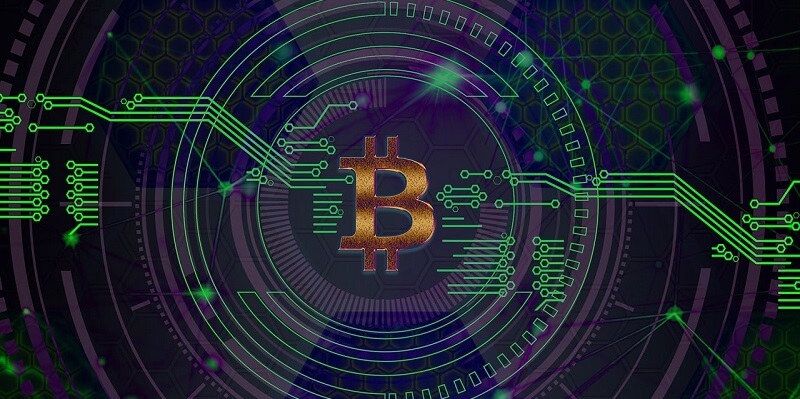In the ever-evolving world of finance, tokenization has emerged as a game-changing process that enables the placement of ownership of tangible assets on blockchain ledgers as digital assets. This process not only unlocks significant liquidity from traditionally illiquid asset classes but also brings a multitude of upgrades to assets as a whole. In this article, we will explore the benefits, potential, and future of tokenization for tangible assets across industries.
Upgrades to assets
Tokenization brings a series of upgrades to assets, transcending various industries. Whether it is equities, bonds, precious metals, or investment funds, the process of tokenization introduces enhanced functionalities and opportunities. By turning physical assets into digital assets, tokenization improves their accessibility and allows for fractional ownership, enabling investors to diversify their portfolios with ease.
Lower transaction costs and global market access
One of the key advantages of tokenized assets is the potential for significantly lower transaction costs compared to traditional investments. This reduction in costs can be attributed to the elimination of intermediaries that typically accompany traditional asset transactions. By leveraging blockchain technology, tokenization streamlines the process, removing the need for multiple parties handling the transaction. This leads to more efficient and cost-effective asset transfers. Moreover, tokenized assets offer unrestricted access to global markets. With traditional investments, investors may face various limitations, such as geographical restrictions or high entry barriers. Tokenized assets, on the other hand, can be traded globally, providing investors with a borderless marketplace. This opens up new avenues for liquidity and diversification, enabling investors to access a broader range of investment opportunities.
Transparency and immutability with blockchain
The underlying blockchain technology in tokenization ensures full transparency and immutability in the ownership, exchange, and essential market data of digital assets. This means that every transaction and ownership transfer is recorded and stored on a decentralized ledger, making it accessible and verifiable by anyone. The transparency offered by blockchain technology eliminates the need for trust in intermediaries or centralized authorities, bolstering investor confidence and reducing the risk of fraud or manipulation. Additionally, the immutability of blockchain ensures the permanent and unalterable record of transactions. This provides a tamper-proof history of an asset’s ownership, facilitating due diligence processes and mitigating the risks of disputes. The transparency and immutability of blockchain technology enhance investor trust and improve the overall integrity of the tokenized assets market.
Reduced Intermediary Costs and New Asset Functionality
Tokenization not only reduces transaction costs but also decreases intermediary costs associated with traditional investments. Management fees and insurance costs, which are often passed on to investors, can be significantly reduced through tokenization. By cutting out middlemen and automating processes, tokenization eliminates unnecessary expenses, making investing more cost-effective for participants. Furthermore, tokenization enables programmability and automation, introducing a new level of asset functionality that was previously unimaginable. Smart contracts, coded agreements that self-execute when predefined conditions are met, can automate certain aspects of asset management, such as dividend distribution and compliance monitoring. This programmability enhances efficiency and reduces the need for manual intervention, streamlining asset operations and generating more value for investors.
The Benefits of Tokenization
The benefits of tokenization extend beyond cost reductions and enhanced functionality. Tokenization offers transparency of ownership, allowing investors to verify the authenticity and legitimacy of asset ownership. Additionally, the transfer of tokenized assets is simplified, with transactions occurring seamlessly on the blockchain, reducing administrative hurdles and delays. Proof of solvency, another advantage of tokenization, ensures that the ownership of assets is backed by value, enhancing investor confidence in the underlying assets. Moreover, privacy can be maintained through zero-knowledge proofs, which enable the verification of asset information without revealing sensitive details. This privacy-enhancing feature is particularly crucial for investors who value confidentiality while engaging in financial transactions. These benefits collectively make tokenization an attractive option for investors seeking efficiency, security, and privacy.
CBDC Programs as a Watershed Moment
A significant indicator of the incoming tokenization boom is the fact that 90 percent of the world’s nations are piloting Central Bank Digital Currency (CBDC) programs. These programs aim to create digital asset tokenizations of fiat currencies, representing a watershed moment for the global financial system. The exploration and experimentation with CBDCs signal a shift towards digital asset tokenizations, further legitimizing tokenization as a mainstream practice. This moment of transition reflects the increasing recognition of the advantages of tokenization, as governments and financial institutions embrace the technology to improve efficiency, reduce costs, and increase transparency in their monetary systems. The CBDC programs serve as a catalyst for wider adoption and acceptance of tokenization as a cornerstone of the future financial landscape.
Tokenization has emerged as a transformative force in the financial sector, unlocking the liquidity of traditionally illiquid assets while introducing numerous upgrades and benefits. The process leverages blockchain technology to reduce transaction costs, provide global market access, ensure transparency and immutability, and enable new levels of asset functionality. As stablecoins gain traction and Central Bank Digital Currency (CBDC) programs gain momentum, the future of tokenization for tangible assets appears promising. It marks a paradigm shift in how we view ownership, transferability, and investment opportunities. With its potential to revolutionize the financial landscape, tokenization is set to shape the future of asset ownership and investment.

